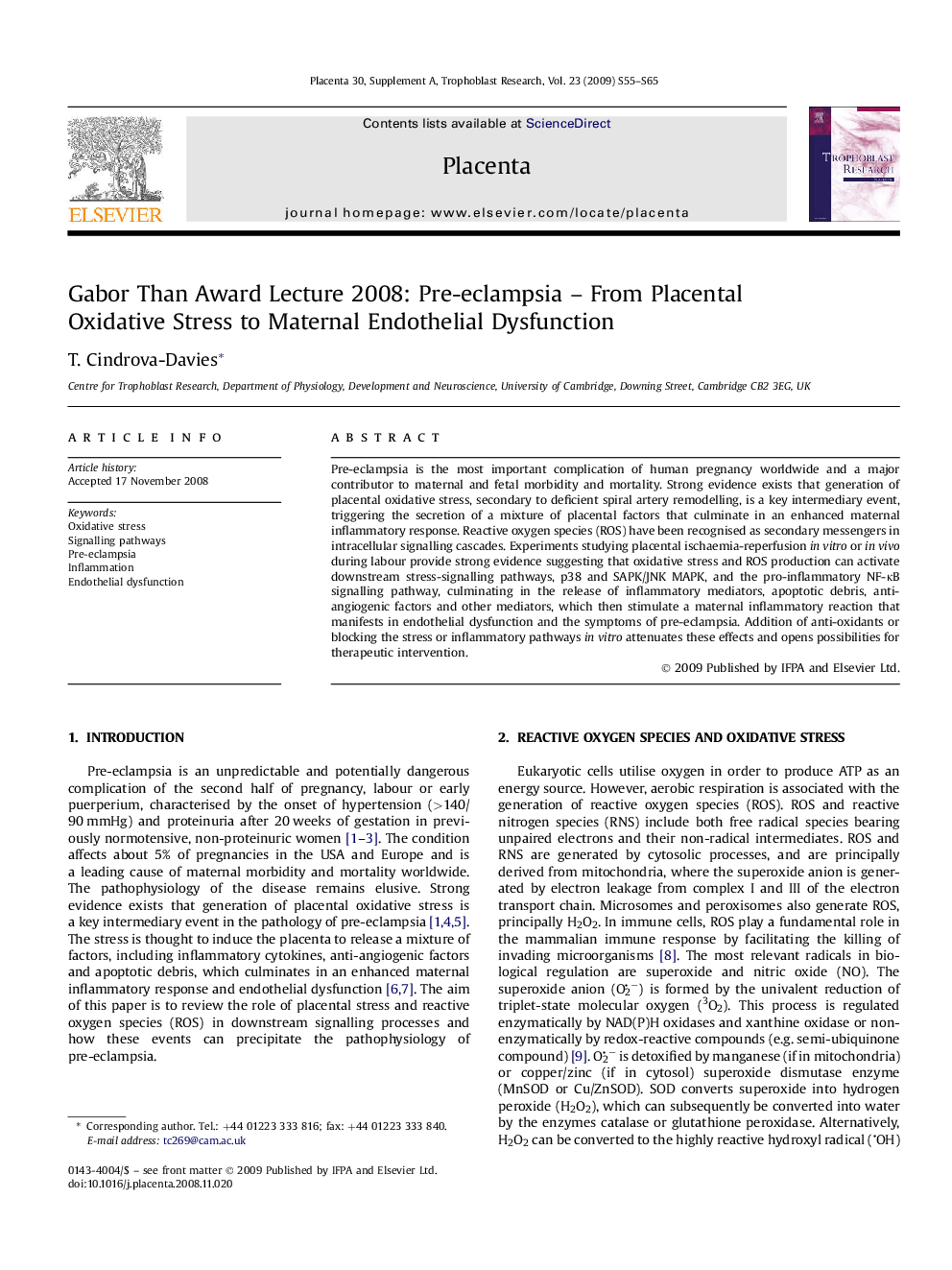| Article ID | Journal | Published Year | Pages | File Type |
|---|---|---|---|---|
| 5896098 | Placenta | 2009 | 11 Pages |
Pre-eclampsia is the most important complication of human pregnancy worldwide and a major contributor to maternal and fetal morbidity and mortality. Strong evidence exists that generation of placental oxidative stress, secondary to deficient spiral artery remodelling, is a key intermediary event, triggering the secretion of a mixture of placental factors that culminate in an enhanced maternal inflammatory response. Reactive oxygen species (ROS) have been recognised as secondary messengers in intracellular signalling cascades. Experiments studying placental ischaemia-reperfusion in vitro or in vivo during labour provide strong evidence suggesting that oxidative stress and ROS production can activate downstream stress-signalling pathways, p38 and SAPK/JNK MAPK, and the pro-inflammatory NF-κB signalling pathway, culminating in the release of inflammatory mediators, apoptotic debris, anti-angiogenic factors and other mediators, which then stimulate a maternal inflammatory reaction that manifests in endothelial dysfunction and the symptoms of pre-eclampsia. Addition of anti-oxidants or blocking the stress or inflammatory pathways in vitro attenuates these effects and opens possibilities for therapeutic intervention.
